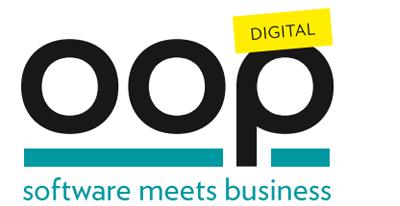Please note:
On this page you will only see the English-language presentations of the conference. You can find all conference sessions, including the German speaking ones, here.
The times given in the conference program of OOP 2023 Digital correspond to Central European Time (CET).
By clicking on "VORTRAG MERKEN" within the lecture descriptions you can arrange your own schedule. You can view your schedule at any time using the icon in the upper right corner.
Thema: Soft Skills/Social Skills
- Montag
06.02. - Dienstag
07.02. - Mittwoch
08.02. - Donnerstag
09.02.
Join this tutorial to experiment with a self-reflection process, designed to bring balance into your own development journey.
Rooted in professional coaching practices from Co-Active Coaching, connected with several Liberating Structures, and inspired by ideas from Emotional Agility, this session will help you clarify your goals and aspirations as well as find the right balance for 2023.
Why do you do what you do? What’s important to you about it? What’s next?
Discover answers to these…
For a technology company, building a strong engineering culture is essential for long-term success. Today's software industry is growing so fast that a large proportion of developers will inevitably have less than 5 years experience. At the same time, many software systems contain code that is ten, twenty or even thirty years old.
It's a constant challenge to communicate a healthy culture to newcomers and prevent technical debt from getting out of control. Technical coaching is all about…
"Ich hatte keine Zeit, den Zaun zu flicken" - Dieses Zitat kennt wohl jeder, und doch ertappen wir uns selbst, unseren Zaun nicht geflickt, sondern stattdessen die Hühner gesucht zu haben.
Doch wie ändere ich das?
Dieser Vortrag zeigt mit dem Konzept der MLCs ein Tool auf, dieser Falle zu begegnen und sich selbst und andere in den Modus des kontinuierlichen Lernens zu versetzen.
Am Ende haben die Zuhörenden einen ersten MLC durchlaufen und ein Tool erlernt, um sich und anderen den Freiraum zum…
"If you can't measure it, you can't improve it." Although it is (relatively) easy to measure objectively quantifiable decision criteria such as profit, how does one measure "soft" attributes, such as psychological safety or team dynamics, to judge an intervention's success?
This talk will present insights into the practical application of leading-edge research into what makes intelligent, high-performing teams and organisations, exploring the science behind the current buzzwords of…
When we talk about leadership and balance, we also need to talk about how we handle toxic behaviour in our midst and how we protect ourselves and our communities from it. As a full-time open source maintainer and project leader, I've sadly had to encounter many ungrateful, entitled or outright toxic people.
In this session I'll first show some examples, then share some coping strategies that I've successfully used to deal with them. I'll also share some things that everyone can do to help with…
In recent decades, our scientific and clinical understanding of how our nervous system works has increased tremendously. I’ve recently completed an education for trauma-informed work (NARM informed professional). It has changed many key aspects of how I teach and coach and will continue to have a large impact.
In this session, I’m presenting those key learnings, connecting them to well-known parts of Agile knowledge and inviting into a discussion of what a more trauma-informed approach to…
We all live in an increasingly complex world and decision making for leaders isn't getting any easier. However, a long time ago, it probably was equally challenging for the Roman Emperor - Philosopher King - Marcus Aurelius. When dealing with our current challenges as leaders (e.g. as product owners, scrum masters or in management), we can learn from ancient Stoic ideas that we are in control of our own decisions, but we cannot control outcome. This interactive session will leave you with focus…
This interactive workshop presents a practical approach for scaling agile. The approach is based on five shifts needed in typical organisations to get agile to work well at scale. It guides how to find the right balance for each shift, using the current context of the organisation. In this way it not only presents the end state, but also the possible steps to implement each shift.
In this practical workshop participants will learn to assess their own organisation against the five shifts.
Target…
You have emotions? Congrats, you are a (professional) human being! Now, how can you actually handle your emotions smartly in our still tech- & tool-focused IT world?
In professional situations like:
- dealing with human "legacy experiences"
- integrating "personal silos"
- interacting with ease with other human beings
- tackling stressful situations (e.g. conflicts) within a team
This session offers a set of science-based, pragmatic tools that are (almost) always accessible - like a Swiss…

